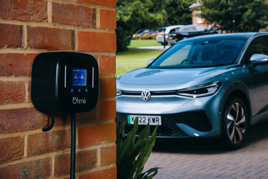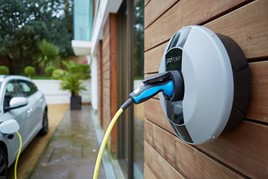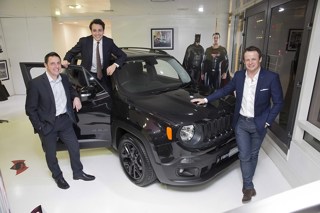Now is the time to create raving advocates for electric vehicles in every dealership in the country, writes Fraser Brown of automotive consultancy MotorVise.
The reputation of electric vehicles has admittedly taken a battering in recent months – a combination of rising household energy costs, ongoing range anxiety, a patchy and expensive public charging infrastructure and concerted campaign in the media to overturn the 2030 ban on new petrol and diesel cars.
Even Volkswagen has announced it is pausing work on its electric models for six weeks, blaming lower subsidies and a hike in inflation for a drop off in consumer interest.
I believe VW’s timing may be a little premature as this is also the month the last Ford Fiesta - the UK’s best-selling car of all time – will roll off the production line as the brand gears up for full scale electrification.
Meanwhile other marques are launching mass market models, including the new Vauxhall Astra Electric and Corsa Electric. At the other end of the price range, even Rolls Royce is getting in on the act with the Spectre.
There is little doubt that as the technology advances and the production of EVs increases, costs are falling and battery range improving. As a result, some EV models are now keenly competitive compared with a diesel or petrol.
 For the first time, the ramped up production of electric vehicles means they will form a significant part of new cars arriving in showrooms.
For the first time, the ramped up production of electric vehicles means they will form a significant part of new cars arriving in showrooms.
Given the recent undeserved fall in interest, there is also a glut of used EVs on forecourts.
DriveElectric has already predicted that UK motorists could buy almost 450,000 new electric cars this year compared with the 267,203 registered in 2022.
If dealerships are to take advantage of this shift and enjoy a successful Q3 and Q4 then they must increase the proportion of EVs sold.
I suspect many people are completely 'Marmite' when it comes to EVs, they either love them or hate them, but little is currently being done by salespeople to shatter the myths and provide customers with considered and accurate information that allows them to make an informed decision on whether a zero emissions car is currently for them.
 The first question must always be whether a customer can charge their car using a domestic electricity supply, rather than the vastly more expensive public charging points.
The first question must always be whether a customer can charge their car using a domestic electricity supply, rather than the vastly more expensive public charging points.
Sales teams must also be well versed in everything from the tax advantages of owning an EV to the different types of chargers, tariffs, and charging speeds and that means understanding the practicalities inside out.
For example, an EV can be charged from a domestic electricity supply for 7.5p per kilowatt, meaning a 100KWH battery with a 300 mile range can be fully charged for £7.50.
MotorVise has already developed software to enable dealerships to highlight the total cost of EV ownership when compared with diesel or petrol – weighing up a generally higher purchase price against much lower running and maintenance costs.
To create those raving advocates for electric vehicles, we have also created a bespoke one day staff training package as well as EV specific sales events that enable dealerships to achieve a significant uplift in sales in response to the increased share of EVs within the new car content mix.
Whatever happens, dealers need to become really good at selling EVs, and fast - and that requires a fundamental change in attitude and approach.
Author: Fraser Brown, managing director of automotive consultancy MotorVise



















Login to comment
Comments
No comments have been made yet.